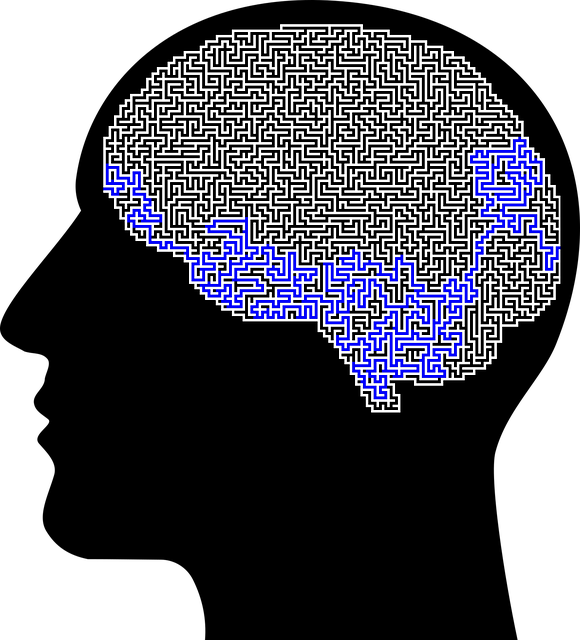Community outreach programs like the Arvada Dialectical Behavioral Therapy (DBT) Model offer innovative mental health solutions by delivering services directly to diverse communities, focusing on both individual and community well-being. The Arvada DBT program combines individual therapy with group skills training in stress management, emotion regulation, and mindfulness. By understanding demographic shifts, socio-economic factors, and cultural nuances, mental health professionals can tailor outreach programs to meet specific needs, fostering inclusivity. Engaging activities like workshops and podcasts incorporate DBT techniques to enhance emotional intelligence and mental wellness. Measuring success through clear goals and data helps adapt and refine programs based on community feedback and evolving needs.
Community outreach programs play a vital role in enhancing societal well-being, especially when tailored to specific community needs. This article explores an effective model through the lens of the Arvada Dialectical Behavioral Therapy (DBT) approach, offering a strategic framework for implementation. We’ll delve into identifying target communities and understanding their unique requirements, designing impactful program structures and activities, and measuring success. By adopting these principles, organizations can foster meaningful connections and bring about positive change in their reach.
- Understanding Community Outreach Programs: The Arvada Dialectical Behavioral Therapy (DBT) Model
- Identifying Target Communities and Needs: A Strategic Approach
- Implementing Effective Program Structures and Activities
- Measuring Success and Continuous Improvement in Community Outreach
Understanding Community Outreach Programs: The Arvada Dialectical Behavioral Therapy (DBT) Model

Community Outreach Programs, such as the Arvada Dialectical Behavioral Therapy (DBT) Model, are innovative strategies that aim to bring mental health services directly to communities in need. This therapeutic approach is specifically designed to address the unique challenges faced by diverse populations, focusing on both individual and community well-being. The DBT model emphasizes a holistic view of mental health, integrating various techniques to enhance resilience and coping mechanisms within the community.
The Arvada DBT program exemplifies effective Community Outreach by combining individual therapy sessions with group skills training. Participants learn valuable skills in stress management, emotion regulation, and mindfulness, empowering them to navigate life’s challenges more effectively. Through this tailored approach, Mental Health Education Programs Design can be adapted to suit specific cultural and social contexts, fostering a deeper connection between therapists and the community they serve.
Identifying Target Communities and Needs: A Strategic Approach

Identifying target communities and their unique needs is a strategic cornerstone for effective community outreach programs, particularly when implementing evidence-based practices like Arvada Dialectical Behavioral Therapy (DBT). This approach involves a meticulous process of understanding demographic shifts, socio-economic factors, and cultural nuances within specific areas. By employing comprehensive research methods, mental health professionals can pinpoint communities that may be at a higher risk for various mental health challenges or lack access to specialized services.
For instance, in Arvada, a thorough analysis might reveal a growing immigrant population facing language barriers and cultural disparities, which could impact their ability to access and utilize available therapy options. This information guides the tailoring of outreach programs to address specific needs, fostering a more inclusive environment that promotes mental wellness and positive thinking. Additionally, risk assessments for mental health professionals play a crucial role in understanding community dynamics, ensuring practitioners are equipped to navigate complex situations effectively.
Implementing Effective Program Structures and Activities

Implementing effective community outreach programs requires careful structuring and engaging activities that resonate with the target audience. One successful model to consider is incorporating dialectical behavioral therapy (DBT) techniques, such as those offered by Arvada DBT Therapy, into program design. DBT focuses on teaching emotional intelligence and skills for managing distress, which are essential components of mental wellness. By tailoring workshops or group sessions around these principles, organizations can foster a sense of community while enhancing participants’ emotional literacy and coping mechanisms.
In addition to DBT, integrating activities that promote social skills training can further enrich the outreach experience. These might include interactive games, role-playing scenarios, or collaborative projects designed to encourage communication, empathy, and teamwork. The Mental Wellness Podcast Series Production can also play a creative role by offering insights into various mental health topics, inspiring participants and providing valuable resources for continued learning. Such structured yet dynamic programs ensure that community members gain practical tools for improving their emotional intelligence and overall mental wellness.
Measuring Success and Continuous Improvement in Community Outreach

Measuring success is a crucial aspect of any community outreach program, especially when incorporating evidence-based practices like Arvada Dialectical Behavioral Therapy (DBT). By setting clear and achievable goals, organizations can track their impact on the target population. This involves collecting qualitative and quantitative data to assess changes in behavioral patterns, improved mental health outcomes, and increased public awareness. For instance, evaluating the effectiveness of Mindfulness Meditation workshops or Empathy Building Strategies through pre-post surveys can reveal significant improvements in community members’ emotional regulation skills.
Continuous improvement relies on using these metrics to adapt and refine programs over time. If Public Awareness Campaigns Development are not reaching their intended audience or expected outcomes aren’t being met, organizers can reassess strategies and make data-driven adjustments. Regular reviews ensure that the outreach remains relevant, effective, and aligned with the evolving needs of the community, ultimately enhancing the overall impact of DBT initiatives in Arvada.
Community outreach programs, like the Arvada Dialectical Behavioral Therapy (DBT) model showcased, are powerful tools for positive change. By strategically identifying target communities and their unique needs, implementing well-structured activities, and continuously measuring success, organizations can effectively foster growth and resilience. This evidence-based approach, inspired by DBT principles, offers a comprehensive framework to empower both communities and the individuals within them.








